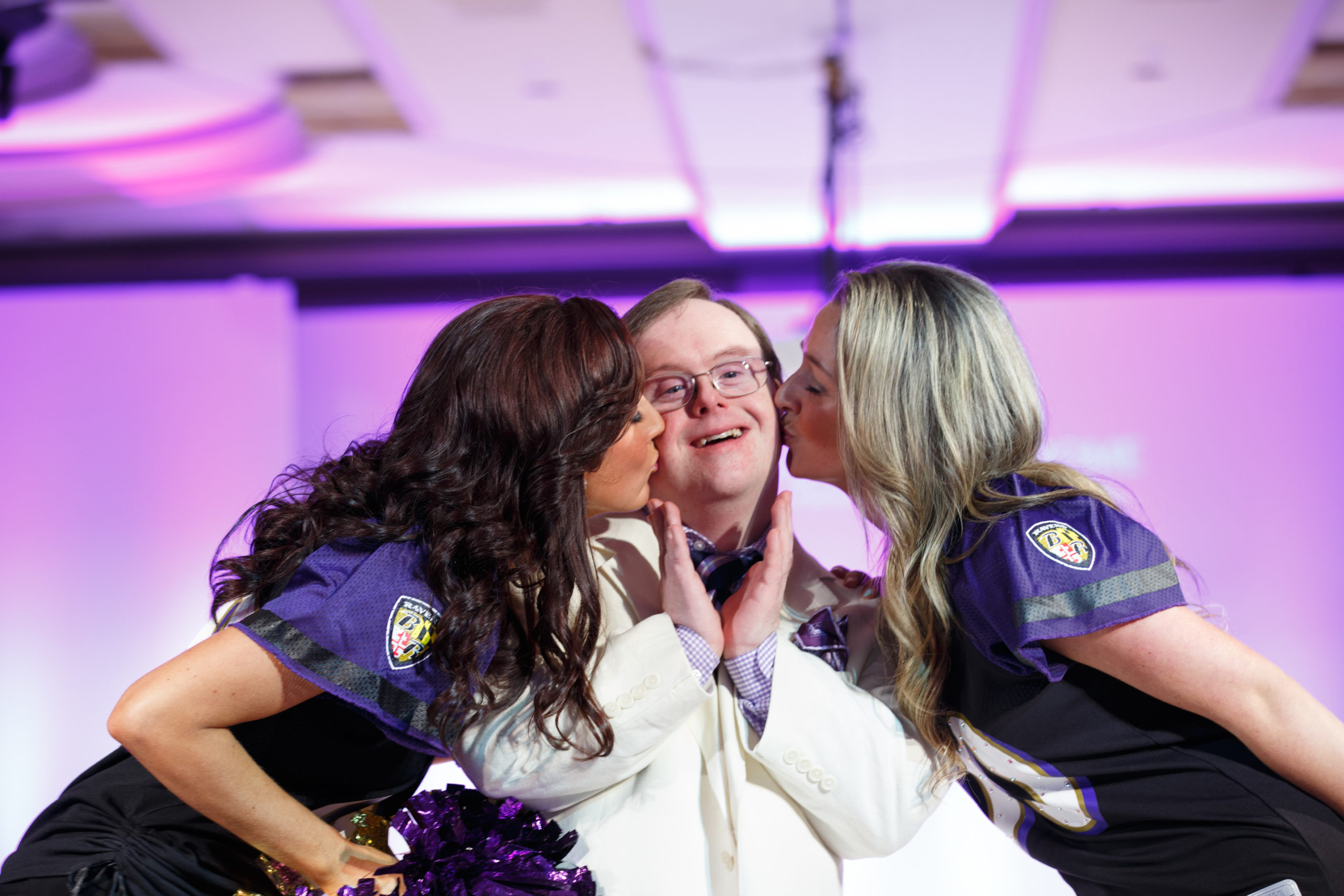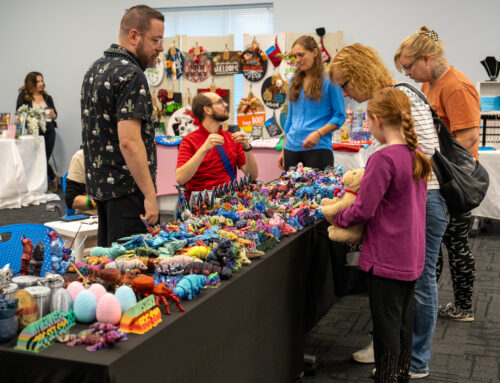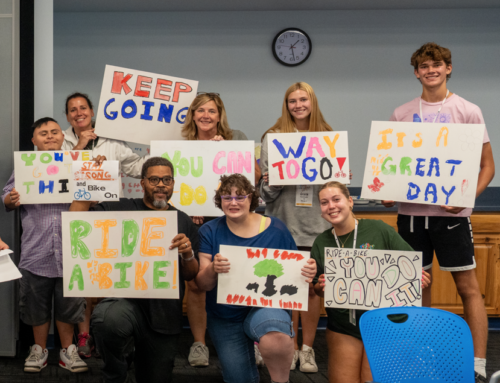At ADEC, we like to think that the extra chromosome found in individuals with Down syndrome is pure awesomeness.
Because October is Down Syndrome Awareness Month, we will be celebrating all of that awesomeness with a special keynote speaker on Oct. 25.
We cannot wait to meet Frank Stephens, a disability advocate, as he uses humor and poise to advocate for all individuals with intellectual and developmental disabilities. As he told members of Congress in a powerful speech last year: “I am a man with Down syndrome, and my life is worth living.”
Frank is an active advocate for the Global Down Syndrome Foundation and was named one of the World’s Most Extraordinary Ordinary People in 2012. He is also a Special Olympics athlete and global messenger.
Down syndrome is a genetic disorder that occurs when a person has three copies of chromosome 21 instead of the typical two. But Frank describes it much better than we can:
“When my body was first forming, when the first two cells divided, each of them had one extra tiny, tiny piece of material called a chromosome.
People like me tend to be a little shorter because our arms and legs are shorter than most people’s. Our faces are usually a little bit flatter than most people’s because our cheekbones and noses don’t stick out from our faces as much.
All of that adds up to a person who is a little bit uncommon … in my case, uncommonly handsome.”
On Oct. 25, Frank will share his message about how lives with Down syndrome are still lives worth living. He has spoken internationally about the value that people with Down syndrome and other intellectual and developmental disabilities bring to the world.
In Iceland, nearly 100 percent of fetuses who test positive for Down syndrome are aborted. When the country boasted that they were on pace to eliminate Down syndrome, Frank spoke to world leaders about why it’s not something to brag about.
“I completely understand that the people pushing this particular ‘final solution’ are saying that people like me should not exist,” Frank told members of the U.S. Congress in a testimony that went viral on the Internet has been viewed by more than 160 million people. “That view is deeply prejudice by an outdated idea of life with Down syndrome. Seriously, I have a great life!”
That outdated idea of life with Down syndrome is rooted in a time not so long ago when individuals with intellectual and developmental disabilities were sent away to dehumanizing institutions. Back then (and as recently as 1983), people with Down syndrome were not expected to live much past the age of 20.
Today, the average life expectancy for individuals with Down syndrome is 60 years old, with many living into their 70s and 80s. Not only do people with Down syndrome live longer, but they also live lives with more choice and possibility than ever before.
Just take a look at Frank, who has addressed the United Nations and made a guest appearance on A&E’s hit reality show “Born This Way.” Former President Barack Obama has quoted him in a speech, and he has sat six feet away from Katy Perry as she performed “Firework.” He’s walked the red carpet at the Emmy Awards in Hollywood for his role in a movie called “Touched by Grace.”
“I have been to the East Room of the White House, twice … and I didn’t have to jump the fence either time,” Frank said.
We cannot wait until Frank joins us on Oct. 25 as we celebrate his life, and the lives of all the individuals we serve at ADEC.
Although they may not have received personal dinner invitations from U.S. presidents, the people we serve at ADEC have accomplished incredible things of their own — from starting their own online business to becoming a commissioned artist.
Join ADEC and Frank on Oct. 25 for a dinner and a healthy serving of inspiration, which wouldn’t be possible without sponsors Old National Bank, Robert Weed Plywood and the Community Foundation of Elkhart County.









